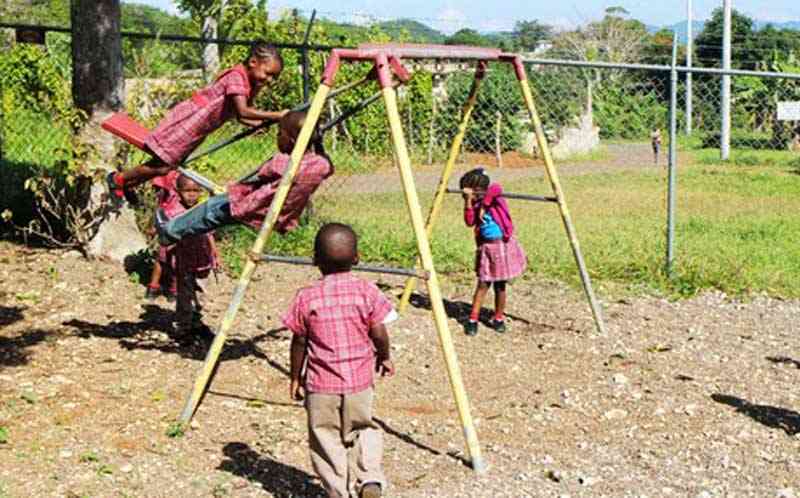
THE corporatisation and commercialisation of play through outdoor recreational facilities has come with a heavy price for the wholesome growth and development of young children, because the former and the latter are not natural for the children as they are structured and experienced through crowded spaces.
Children have a natural inclination towards play; and play for children is critical in shaping them into well-rounded children. This opinion piece seeks to interrogate developmental projects taking place in Zimbabwe which have no regard for creating recreational facilities for children.
Zimbabwe is witnessing a spurt of new suburbs like gated communities and high-density areas. The new suburbs or locations do not have any spaces for the recreation of children. The United Nations Convention on the Rights of the Child (UNCRC) (1989) Article 3(1) states: “In all actions concerning children, whether undertaken by public or private social welfare institutions, a court of law, administrative authorities or legislative bodies, the best interest of the child shall be a primary consideration.”
By extension, the best interest of the child should always guide any designing, planning, budgeting, implementation, monitoring and evaluation of any programme or project. Over and above that, the voice of the child (UNCRC Article, 12) should always be heard in matters concerning them.
It is indeed as clear as a bell sound that those responsible for planning on having new residential suburbs in Zimbabwe are violating the children’s best interest, participation rights and the right of children to play (UNCRC Article, 31) as it is evidential that recent developments of human settlements have been developed without any play centres or recreational facilities for children.
When children get an opportunity to play, they are either taken by their parents or guardians to food courts where, in some cases they can be allowed to use play facilities after having bought some food items, or they would have been taken to braaing (gochi-gochi) spaces where spaces for play have been considered for them.
Within their crowded gated communities and high-density suburbs, children are routinely seen playing football or netball along the roads, exposing themselves to the danger of being run over by cars as well as causing accidents.
Those who are responsible for parcelling out land for the development of housing units in both urban and rural local authority areas should at least have some working knowledge of the importance of play for children.
- Mavhunga puts DeMbare into Chibuku quarterfinals
- Bulls to charge into Zimbabwe gold stocks
- Ndiraya concerned as goals dry up
- Letters: How solar power is transforming African farms
Keep Reading
Every piece of land considered for human settlement should have appropriate spaces for recreational facilities for children. Similarly, mushrooming new schools should also have playgrounds for children.
When the right to play for children is trampled upon because of lack of spaces for play, children may not experience wholesome development in the social, psychomotor, moral, cognitive, affective and spiritual domains.
The right to play for children is as important as the right to healthcare, education, food and water because through play children learn about relationship skills, empathy, leadership skills, sharing, tolerance, acceptance and understanding of human differences.
To deny children the right to play is akin to robbing them off a healthy future that would ideally help them to live harmoniously with others.
The outcry regarding drug abuse in Zimbabwe may actually be attributed to lack of recreational facilities. When children and youths find themselves with nothing to do, without any opportunities for recreation they may even resort to experimenting with drugs. Idle minds are indeed the devil’s laboratory.
Zimbabweans love soccer and netball generally, and they expect to excel in these sports, but surprisingly they have not created spaces for children to horn their skills in the sport disciplines.
Government has a duty of ensuring that as local authorities parcel out land for human settlement, spaces should be fenced off for play.
Any housing developments which come without any widespread benefits for children and the youths should be condemned. Development should come with a human face, and this human face should prize a personal touch for children’s play.
The writers of this opinion piece have observed developing housing units in Dzivaresekwa Extension, Harare, where there are crowded matchbox houses with neither play nor parking spaces for cars. This should be lampooned because the crowded dwellings create a fertile ground for the abuse of children.
We strongly believe that such professionals as engineers and town planners seized with the development of new housing units should have infused into their training four key principles of the rights of the children as enshrined in the UNCRC (1989) to which our country is a signatory, which are the best interest of the child, non-discrimination, participation and growth, survival and growth and development. It is critical that child safeguarding should be central to the designing and planning of human settlements.
Children have limited experiences and are also vulnerable, thence the need to ensure that duty bearers become alive to their global needs and rights.
Play for children should not just be a concept introduced and reinforced at school at the stage of early childhood development.
It is a concept which should be nurtured at home through the creation of safe play spaces in communities.
Children develop new vocabulary through play, children learn to accommodate one another through play, children learn turn-taking skills in dialogues through play, children expand, embrace and enhance their understanding of human diversity through play and children learn to be assertive through play.
When the professionals responsible for planning new suburbs for human settlement pooh-pooh play, they short-change children’s growth and development.
Let play be natural for children in their own communities, when play is corporatised and commercialised, poor children will miss out on living their childhood to the hilt.
Children have limited experiences and are also vulnerable, thence the need to ensure that duty bearers become alive to their global needs and rights.
Play for children should not just be a concept introduced and reinforced at school at the stage of early childhood development.
It is a concept which should be nurtured at home through the creation of safe play spaces in communities.
Children develop new vocabulary through play, children learn to accommodate one another through play, children learn turn-taking skills in dialogues through play, children expand, embrace and enhance their understanding of human diversity through play and children learn to be assertive through play.
When the professionals responsible for planning new suburbs for human settlement pooh-pooh play, they short-change children’s growth and development.
Let play be natural for children in their own communities, when play is corporatised and commercialised, poor children will miss out on living their childhood to the hilt.
Children have limited experiences and are also vulnerable, thence the need to ensure that duty bearers become alive to their global needs and rights.
Play for children should not just be a concept introduced and reinforced at school at the stage of early childhood development.
It is a concept which should be nurtured at home through the creation of safe play spaces in communities.
Children develop new vocabulary through play, children learn to accommodate one another through play, children learn turn-taking skills in dialogues through play, children expand, embrace and enhance their understanding of human diversity through play and children learn to be assertive through play.
When the professionals responsible for planning new suburbs for human settlement pooh-pooh play, they short-change children’s growth and development.
Let play be natural for children in their own communities, when play is corporatised and commercialised, poor children will miss out on living their childhood to the hilt.
-
-
- Nicholas Aribino and Cyprian Muchemwa write here in their individual capacities
-










